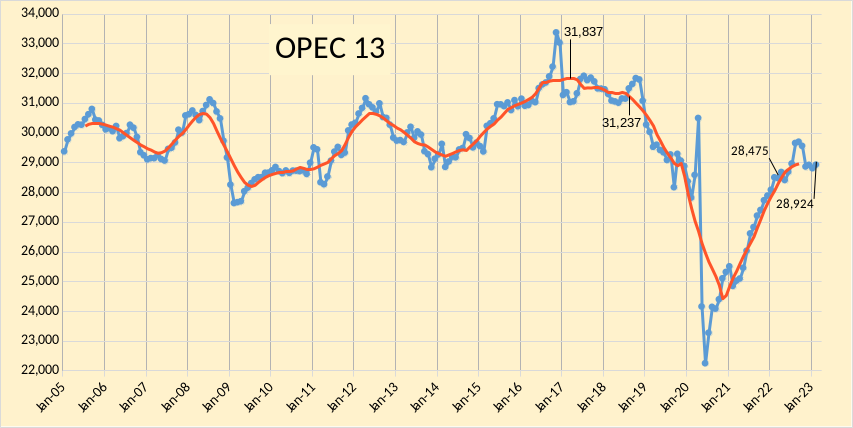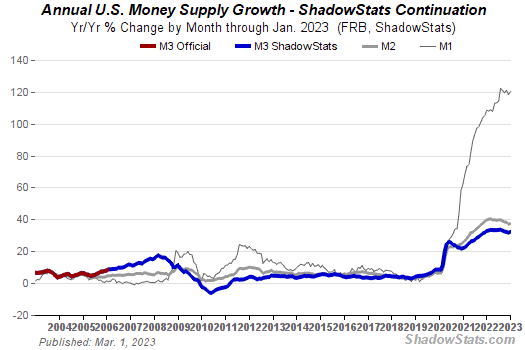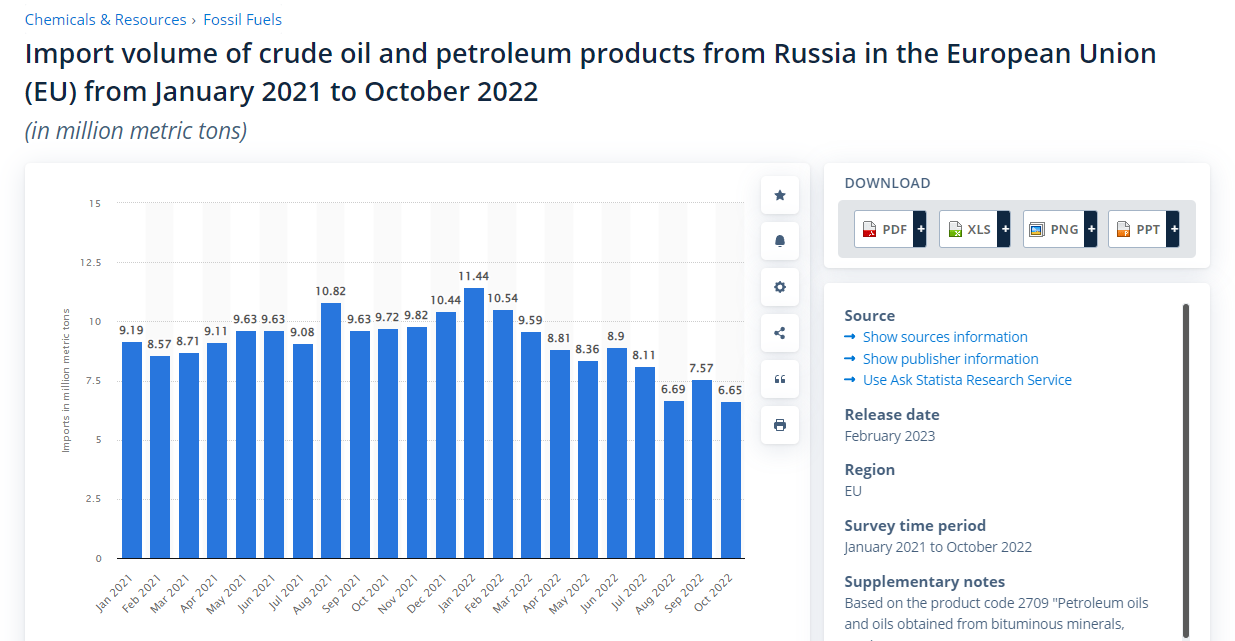The loss of Ukraine is the beginning of the end
“On the eve of the collapse of the Roman Empire, silver coins were so impure and depreciated that whole bags of it were used in circulation.”
All of this is about energy and resources. Capital is nothing but a proxy for goods, services, and the fundamentals of our means of production.
Depreciation of the currency is a short-term solution to resource scarcities by externalizing them through exploiting the perceived value of a trusted medium of exchange.
This is exactly why we have runaway inflation right now.
Energy is the single most important resource, bar none. All forms of economic activity is predicated on available surplus energy as per the laws of thermodynamics.
Before the covid situation, Europe and the US each consumed about 20 million barrels of oil per day, totaling around 40 million barrels of oil.
Every single day.
The shortfall in petroleum production before the Ukraine war was about six million barrels per day, i.e. Europe and the US were net importers for 6 000 000 barrels of oil, every day, to fuel their average levels of economic activity.
Since Europe depended chiefly on Russia for its oil imports (around 8,2 million barrels per day at the peak in early 2022), the combined shortfall of Europan and US consumption vis-a-vis production is now approaching ten million barrels per day (according to official stats).
A barrel is about 160 liters or 42 US gallons.
In other words, we have a shortfall of sixteen billion liters per day, which must be covered by imports just to maintain normal levels of economic activity.
So what happens if this deficit isn’t offset by imports?
Well, pretty much the same thing that happens when you stop eating.
Thermodynamically speaking, the activity of your body in terms of a physical system, becomes progressively less complex until it’s not a system at all anymore.
Russia, on the other hand, that old gas station masquerading as a country, produces three times (10 million barrels per day) as much oil as it currently consumes. It also sits on quite a bit of untapped and unexplored reserves, and is well-situated to access the pristine Arctic reservoirs.
Russia is also strategically placed to exert influence over Iran and Iraq, whose oil fields are not only relatively untapped, but also hold the promise of further and entirely unexploited reserves, not least the West Qurna field that potentially contains more than 40 billion barrels of recoverable reserves in total.
As an aside, 35 billion barrels are consumed globally every year, so to keep everything running smoothly, we’d need to discover about one of these per annum (hint: we’re absolutely not).
The world’s largest discovery during the last 30 years is the Kashagan oil field just outside Kazakhstan in the Caspian Sea. Central Asia, considered the “second Middle East”, likely holds the largest amount of undiscovered petroleum reserves of any region in the world.
Iraq & Afghanistan also happen to be key to the control of Central Asia. Why do you think the US illegaly invaded Afghanistan? Just to peacefully grow opium poppies and export heroin?

So where are the rest of the world’s remaining significant reserves? Venezuela sits on the largest total oil reserves of any country, but it’s low quality and the lifting costs imply a quite low EROI (energy returned on (energy) invested). Same goes for the largest Canadian reserves, i.e. the oil sands, as well as for the US shale patch.

Then we have the Saudis, whose supergiant Ghawar has basically single-handedly fuelled industrial civilization as we know it. Production started here way, way back in 1948. Ghawar has peaked, of course, and the net lifting costs are mounting due to the increasingly energy-intense processes needed to keep production sufficiently high.
Is the picture beginning to come clear here?

So “we” lost control of Venezuela. Juan “Random Guy” Guaido didn’t pan out (yeah, that wasn’t really about protecting the poor and down-trodden either).
Saudi Arabia is running dry. The US and NATO absolutely, positively, without question, need to somehow retain hegemony over Central Asian petroleum resources (and those of nearby Iraq and Iran) and in the long run also has to wrest control of the Russian and Arctic reserves.
There are no other options.
Renewables?
Oh, did I hear somebody mention “renewables”? Just… No. Their actual EROI is shit. Apart from hydro, which is a special case, it’s so poor they rarely even pay for their own production. The industrial supply chains and infrastructure they depend on are so vast and complex that all purported renewables always rest on a hidden petroleum input, a sort of fossil fuel subsidy, without which they couldn’t even operate.
But forget all that. Let’s assume that they actually pay for themselves. Let’s assume that we can in practice produce free energy, and that we could very well have have flying electric cars in a couple of decades if we’d only sacrifice enough infants on the cargo cult altar. Sure. Fine.
Yet even IF “renewables” were not so ineffective on the whole that they’re not an energy sink, HOW are you going to bring about an energy transition at the cost of six trillion dollars per year in a situation of de facto energy and resource scarcity?
Look at this chart below. Solar, wind and “other renewables” are a tiny, insignificant fraction of the energy used by the global industrial economy. And hydro can’t realistically be expanded further (there are only so many huge rivers that can be dammed), so it has to be disregarded.
Even if we somehow were to manage a continued EXPONENTIAL growth of these energy sources akin to the 2010-2020 period where they expanded by 50%, it’d be about fifty years before they made up half of the 2021 global energy mix.
And how are you going to expand renewables exponentially in a context of energy and resource scarcity? Yeah, you’re not going to. Because of the laws of physics.
Shale oil?
Perhaps we need to say something about the “shale miracle”. The quantities of petroleum encapsulated in these sorts of geological formations is admittedly significant.
“‘At the wellhead’ EROI is approximately 2:1 for shale oil (again, considering internal energy) and 20:1 for petroleum.” (https://doi.org/10.3390/su3112307)
Yeah. The energy-inefficient shale play was possible without actually increasing net US petroleum consumption since it could be run at a loss through money printing (since capital could be used as a claim on foreign resources, exploiting an external industrial base ). Had all the energy and resources to force shale oil out of the ground been sourced in the US, the endeavour would have increased net consumption significantly.

I.e. you externalize energy and resource costs through strategic use of a trusted currency. This is basically a summary of the petrodollar. It’s a neo-colonial scheme.
Yet this money printing in its various forms is not sustainable in the long run. It’s key to why we now have inflation (as well as the incredible stock market over-valuation, the “everything bubble”). It’s also why we had the 2008 banking crisis, whose repercussions are portending another great depression right about now.
Few options
So if you’re sitting in the West’s driver seat in a situation like this, what do you do?
The $64,000 question.
Well, you reduce unneccessary economic activity. Remember covid lockdowns? Look at that notch in the curve on the last figure.
You can reduce population growth. You can kill off people or impair their fertility.
And you very clearly needed this last-ditch push for Ukraine. To be able to choke Russian influence in Central Asia and further down in the Middle East. Without Crimea, their power projection all the way down through the Mediterranean would have been shot.
If you humbly had asked the average impoverished worker in the third world (or average Western peon) if he’d please go fuck himself and sacrifice his children so that the elites can hold on to their pathetic slivers of power in some semblance of a growth economy, what sort of answer do you think would be forthcoming? And while he’s at it, could he please also support a little colonial war capped with sanctions against the world’s number one wheat exporter?
Yeah, fuck you and the horse you rode in on, we’ll just collectivize everything and build a stable, no-growth, steady-state economy like half the nations in Africa tried to before we found they were too important to maintain as resource colonies (thank you very much).
Propaganda narratives
So instead you’re sold the climate change bill of goods, and the incoherent Disney narrative of the evil Russian Empire that just had to inexplicably invade Ukraine (and soon, the rest of the world).
Indeed, the climate change narrative serves many important purposes here. It’s a ritualistic and brilliantly counter-intuitive homage to our myth of progress (struggle-focused and counter-intuitive enough to harness our rebellious impulses), while it through repetition and incantation also emphasizes that energy independence through techno-fixes is indeed really viable, obscuring the real politics of the contemporary resource situation (Russia’s evil desire to market its dirty oil and gas is the very epitome of a non-sustainable enterprise within the narrative’s framework. So is the bare existence of a coal-fuelled industrial base in China).
And it essentially hammers home the message that industrial civilization doesn’t really need oil. That we, the ingenious West, unlike those backward primitives can construct perpetuum mobilae and maintain indefinite economic growth. In a few years, we’ll have enclosed the sun in a dyson sphere and will expand to the dark corners of our Lovecraftian universe. You just wait and see.
+++
The current series of financial crises are essentially an attempt to paper over actual and ultimately irresolvable resource and energy scarcities in the physical economy.
Almost nobody anywhere is going to tell you this. Not Roubini. Not ZeroHedge. Not Douglas McGregor. Not the gold bugs.
In summary, the "free money" period made possible fake growth which further externalized real costs in terms of resource and worker exploitation to the peripheries of the economy, and they were really a very effective scheme in terms of redistributing a local energy shortfall as evenly as possible.
The Ukraine situation is a logical consequence of the entire process, since it's only really about the control of oil and gas in Central Asia and Russia (and the distribution networks, the central hub of which is Ukraine).
Ukraine’s importance to the West can hardly be overstated.
If Ukraine is lost, the West stands without any real prospects to address its critical energy constraints. That means degrowth. It means economic and geopolitical collapse.
With Saudi increasingly depleted, Venezuela lost, and Iran partnered with China and Russia to cement their control over Central Asia, significant changes will inevitably come. As the financial alchemy finally fails to paper over an increasingly obvious resource and energy deficit, the dollar’s role as a reserve currency will progressively diminish, and the political associations and partnerships will shift accordingly.
We are going to see this entire structure of power, erected over the course of more than three centuries, begin to crumble in earnest.
And with the natives over here getting restless, the war turning in favour of Russia, and a secular banking crisis emerging in the wake of the structural resource deficits, the imperial administrators of the West must certainly already be quite desperate.
And desperation does indeed breed ingenuity for the ambitious.














The DemocRats create crises so they can pretend to solve them with measures that create more crises.
Now, they are all about solving their energy crisis by causing a nuclear war.
Well done!
With the amount of oil still available it comes down to who controls the best EROEI.